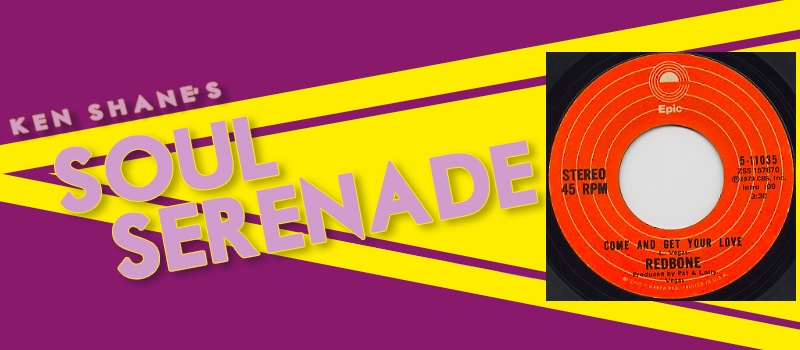 As I’ve pointed out many times in this column, soul doesn’t know any colors. When you hear a song on the radio, by an artist that you’ve never seen, you have no way of knowing if that artist is black, white, or any other color. Rock and roll legend tells us that the first time that Buddy Holly showed up to play at the Apollo Theater, the audience, which to that point had only heard his records on the radio, was stunned to learn that he was white. It made no difference of course because Holly proceeded to blow the crowd away.
As I’ve pointed out many times in this column, soul doesn’t know any colors. When you hear a song on the radio, by an artist that you’ve never seen, you have no way of knowing if that artist is black, white, or any other color. Rock and roll legend tells us that the first time that Buddy Holly showed up to play at the Apollo Theater, the audience, which to that point had only heard his records on the radio, was stunned to learn that he was white. It made no difference of course because Holly proceeded to blow the crowd away.
Pat and Lolly Vegas are another example that anyone can have soul. The brothers were born near Fresno, California. Their heritage was a blend of Native American and Mexican. Early on, Pat won a Coca Cola singing contest that promised him the chance to become a recording artist. Instead of pursuing that opportunity, Pat moved with his brother to Los Angeles in 1969. In LA the brothers formed a band and began playing gigs in Hollywood clubs. At the same time they were writing songs and playing on records by artists like Tina Turner, Sonny & Cher, James Brown, Little Richard, Elvis Presley, and others.
Pat and Lolly called the band Redbone, a Cajun term that describes someone of mixed-race heritage. Earlier they had performed as the Vegas Brothers, and the Crazy Cajun Cakewalk Band, doing shows in Las Vegas, and even appearing as frequent guests on the TV show Shindig! Then, inspired as many artists were then and now by Jimi Hendrix, who was part Cherokee himself, the brothers formed an all-Native American band and called it Redbone. The other band members were Peter DePoe and Robert Anthony Avila, aka Tony Bellamy.

Redbone signed with Epic Records in 1969. It was also in that year that Hendrix called Lolly his favorite guitar player, and Pat his favorite bass player, and said that their music was his biggest influence. Redbone’s self-titled debut double album was released in 1970. They were primarily a rock band, but their music was full of Cajun, tribal, Latin, jazz, and R&B influences.
Their first big success came with the single “The Witch Queen of New Orleans,” which reached #21 on the Billboard Hot 100. Redbone’s second album, Potlatch, spawned the #45 single “Maggie.” DePoe left the band at that point, and he was eventually replaced by Tony Bellamy’s cousin Butch Rillera. It was with this lineup that Redbone had their greatest success.
The politically-charged 1973 single “We Were All Wounded at Wounded Knee” was a hit overseas, but it was initially withheld from release because the song’s lyrics recalled the massacre of Lakota Sioux Indians by Custer’s Seventh Cavalry. When it was finally released, a number of radio stations banned it. As a result, the record failed to chart.
It was the fifth Redbone album, Wovoka, that contained their biggest hit. The single “Come and Get Your Love,” was written by Lolly Vegas and released in January 1974. By April of that year it had reached a peak position of #5 on the Billboard Hot 100. The record was certified gold that year for sales of half a million copies. The song has been covered many times, and used in a number of films, including its recent appearance in 2014’s Guardians of the Galaxy.
Two subsequent singles, “Wovoka,” and “Suzie Girl,” barely missed the Top 100. Several other singles followed, but missed the chart completely. The albums Beaded Dreams Through Turquoise Eyes (1974), and Cycles (1977) also failed to find chart success.
Redbone, led by Pat Vegas, continues to tour with Pat as the only original member. His brother Lolly suffered a stroke which left him unable to play, and died of lung cancer in 2010. Tony Bellamy had died of liver failure a few months earlier. The Native American Music Association Hall of Fame inducted Redbone in 2008.
https://www.youtube.com/watch?v=fWnRMAVWVjk





Comments